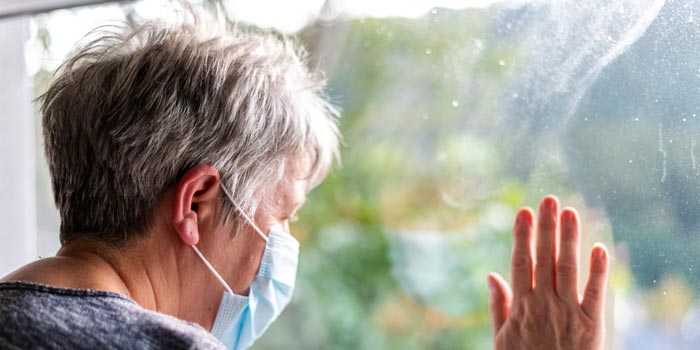Anxiety and depression as a result of Covid-related events have pushed many people – especially seniors – into as yet undiagnosed mental health conditions. Seniors especially have been cut off from customary sources of mental stimulation and relationships. They are often the simple things like visiting grandchildren or shopping or normal senior social activities around which their lives are structured. Such social isolaton creates a huge void in their normal life routines that can lead to serious depression.
The commitment to protecting our seniors from the impacts of Covid-19 should not allow us to overlook the impact of depression.
Physiologically, the brain changes that cause depression are more common as people age. If depression is not addressed for more than a month or two, the risk of other serious health problems can result. They include the obvious loneliness and isolotion, of course, but can lead to poor health due to inactivity, pain and sensory loss.
Further, studies have shown that depression doubles the impact of coronary heart disease. Conversely, heart disease increases the risk of depression. A vicious circle.
Similarly, dementia and depresssion tend to be linked. Inflammation of the brain tissue that occurs when a person is depressed has the possibility of triggering dementia.
What does Depression “look” like?
Some of the manifestations of depression are easily recognizable while others are more subtle. Use this checklist to see if you find evidence of depression in an older loved one.
- Do you observe persistent feelings of hopelessness or sadness?
- Does the person in your care seem to have more difficulty concentrating?
- Does your loved one convey a sense of worthlessness?
- Do you notice a loss of energy with slower than usual movements or indication of fatigue?
- Do you notice a loss of interest in activities that he or she once enjoyed?
- Does he or she seem to have less of an appetite?
- Is he or she more irritable or restless or express greater anxiety than before
Even though seniors experience depression more often than younger people, they are less likely to share that information with family or medical professionals – that is if they even recognize it themselves. As a caregiver, if you notice the symptoms described above, try to engage the senior in a conversation about it. Depression is treatable and consultation with medical professionals is an important follow-on step. With Covid as a backdrop, it is wise to be even more aware.
In-home care can also be a positive step. Family members cannot always be present as frequently as necessary. Professional in-home care is often a good middle-ground for making sure the senior is mentally stimulated and actively engaged with other human beings at this time of greater stress.

